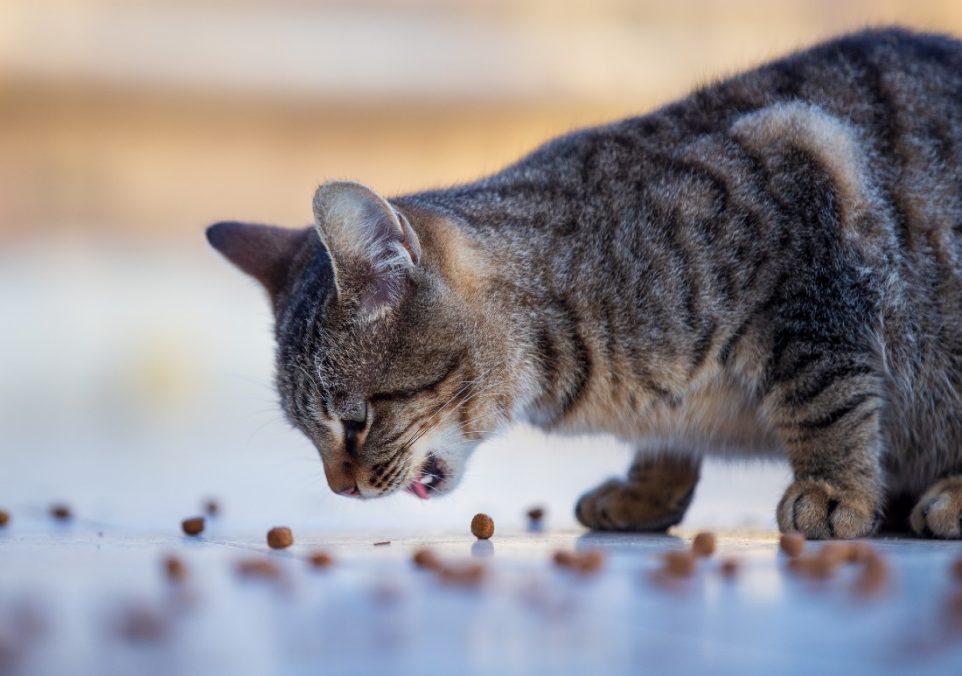Cat Throwing Up Food? 5 Home Remedies and When to Call the Vet

As a cat owner, witnessing your feline friend vomit can be a cause for concern. Cats may vomit for various reasons, from minor issues like hairballs to more serious health problems. If your cat is throwing up their food, it’s essential to determine the underlying cause and take appropriate action to ensure their well-being. In this blog, we’ll explore common reasons why cats vomit, home remedies to try when your cat is experiencing minor digestive issues, and when it’s necessary to seek veterinary attention. By understanding your cat’s health and addressing vomiting promptly, you can provide them with the care they need for a healthy and happy life.
Reasons Why Cats Vomit
Cats may experience vomiting due to various reasons. Hairballs can form in their stomach from ingesting loose fur during regular grooming. Sudden changes in their diet can upset their stomach leading them to vomit. Cats that eat too quickly may also regurgitate their food shortly after consuming it. Underlying gastrointestinal issues like gastritis or inflammatory bowel disease can be another cause of vomiting. Additionally, if a cat ingests a foreign object, their body may try to expel it. Monitoring your cat’s health and seeking veterinary attention for persistent or concerning vomiting is crucial for their well-being.
Home Remedies for Cat Vomiting
If your cat has vomited but appears otherwise normal, you can give their stomach a rest by temporarily withholding food for a few hours. Once you resume feeding, offer smaller, frequent meals to prevent overeating and reduce the chances of vomiting. For cats prone to hairballs, consider using hairball remedies like cat grass or commercial hairball gel to aid in the passage of hairballs. If you suspect diet changes are the cause of vomiting, consider switching back to their previous food or transitioning to the new food gradually. It’s essential to monitor your cat’s water intake to prevent dehydration, which can worsen vomiting. If vomiting persists or is accompanied by concerning symptoms, consult a veterinarian for further evaluation and recommendations, including the best cat food for sensitive stomachs.
When to Seek Veterinary Attention
Occasional vomiting in cats is generally not a cause for immediate concern, but it’s essential to be vigilant and consult your veterinarian in specific situations. If your cat is vomiting frequently, it may indicate an underlying health issue that requires medical attention. Additionally, watch for other symptoms like diarrhea, lethargy, or changes in behavior, as they might signify a more serious problem. The presence of blood in your cat’s vomit is a significant concern and warrants an immediate visit to the vet. Furthermore, if you suspect your cat has ingested something toxic, seek veterinary help immediately.
Your veterinarian will perform a thorough examination, review your cat’s medical history, and may recommend diagnostic tests, such as blood work or X-rays, to determine the cause of vomiting. Treatment will depend on the underlying issue and may include medication, dietary changes, or additional supportive care.
Preventing Cat Vomiting
To prevent cat vomiting and promote a healthy feline friend, follow these simple tips. Regularly groom your cat to reduce the amount of loose fur they ingest during self-grooming. Consistency is key; keep their diet stable and avoid sudden changes. Lastly, minimize stressors in their environment, as stress can contribute to digestive issues. By implementing these measures, you can ensure your cat’s well-being and reduce the likelihood of vomiting or other digestive problems. Monitor your cat’s health and seek veterinary advice if needed for their optimal care.
Conclusion
Cat vomiting can be caused by various factors, ranging from minor issues to more severe health problems. By understanding the reasons behind your cat’s vomiting and using appropriate home remedies, you can provide them with relief from minor digestive issues. However, if vomiting is frequent, accompanied by other symptoms, or includes blood, it’s essential to seek veterinary attention promptly. Regular veterinary check-ups and a balanced approach to your cat’s diet and care can help maintain their overall health and prevent recurrent episodes of vomiting, ensuring a happy and healthy life for your beloved feline companion.
Your Pet’s Best Interest, Always
At Pet Institute, we take pet care seriously. We're dedicated to transparency, impartiality, and the well-being of your pets in every article, review, and recommendation we provide. Our unwavering commitment to these principles ensures that you, our valued reader, always receive reliable and unbiased information. Let us be your trusted guide in the world of pet care and companionship.